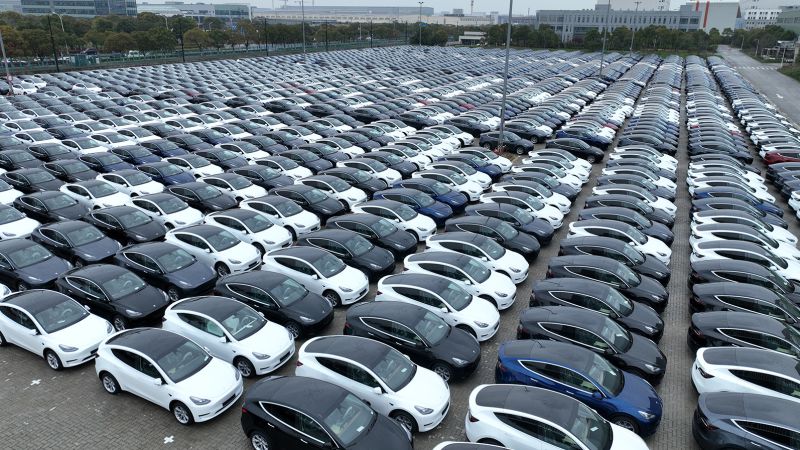The European Union has set tariffs on Tesla’s China-made vehicles at a lower rate than those imposed on other electric carmakers, boosting Tesla’s future sales in the region. The decision came after the EU raised tariffs on all electric cars imported from China two months ago, citing unfair state subsidies to Chinese electric vehicle makers. Tesla had requested a reevaluation of its tariff rate, which was initially at 20.8% and has now been set at 9% by the European Commission. This is on top of the existing EU duty of 10% on all EV imports, but still lower than the additional tariffs on other Chinese automakers.
The European Commission stated that the tariff reflected the level of subsidies Tesla received in China, and further investigation was conducted during a visit to China. Gregor Sebastian, a senior analyst, commented that the 9% tariff was surprising, considering the local government loans and subsidized batteries Tesla has received in Shanghai. The additional duty, although negative for Tesla, gives the carmaker some breathing room relative to its major competitor in Europe, SAIC, which has been hit with a 36.3% tariff. Other Chinese automakers, such as Geely and BYD, also face additional duties ranging from 17% to 19.3%.
Tesla had previously hiked the price of its Model 3 in Europe by about 4% due to the initial EU tariffs in July. The reduced additional tariff from the European Commission will help the Model 3 remain competitive with other Chinese-made EVs in Europe, according to an automotive research analyst. BYD, on the other hand, has not raised prices in Europe despite the hefty additional tariffs, as it has the ability to absorb the costs with lower production costs. BYD could potentially ramp up exports of plug-in hybrid electric vehicles, which Tesla does not produce, as the tariffs apply only to battery EVs.
Chinese EV makers are unlikely to give up on the European market, regardless of higher tariffs, as Europe accounted for over a third of their exports last year. Chinese automakers have a large margin on their sales in Europe, despite the additional tariffs imposed. BYD has the ability to absorb additional EU tariffs of up to 45% and could potentially avoid tariffs altogether by manufacturing cars in Turkey for the EU market, as imports from Turkey are not subject to tariffs. The European Union’s decision on tariffs has implications for the competitive landscape of electric vehicle manufacturers in Europe.













